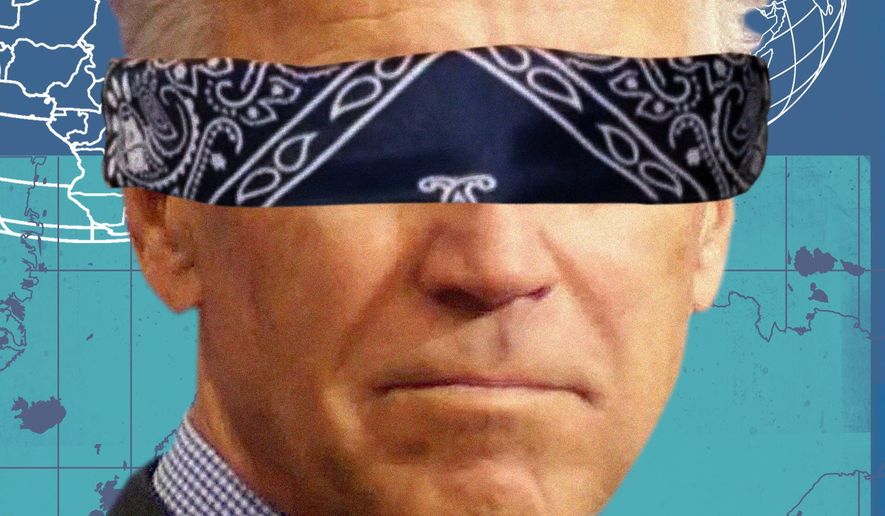OPINION:
SEOUL — In this city of 10 million people, just 15 miles from the North Korean border — bristling with nuclear warheads and bellicose with lies, threats and hatred — international diplomacy is not some kind of State Department parlor game. It is a matter of life and death, every single day.
Few Americans know this better than Mike Pompeo, who, as former President Donald Trump’s top diplomat, led the most significant effort to achieve peace on this peninsula, perhaps since the war reached a frozen stalemate 70 years ago.
Obviously, peace is impossible without strength. Like Henry Kissinger said of the U.S. Navy aircraft carrier: “100,000 tons of diplomacy.”
But it “isn’t just military,” Mr. Pompeo said in an interview with The Washington Times. Out the 28th floor window behind him were the tall, sleek buildings and construction cranes nestled in the carpeted mountains of this still-burgeoning city that is just one button away from total annihilation.
“Deterrence is an idea that is so much at the center of keeping America safe,” he said. “Whether you live in Minnesota or Texas or El Paso — wherever — you need a strong America that deters.”
This goes for America’s allies around the world, too. And with a rising China and increasing nuclear stand-offs everywhere, South Korea is a vital ally.
While Mr. Trump’s peace talks with the hermit kingdom ultimately failed, North Korean leader Kim Jong-un — aka “Little Rocket Man” — at least kept his missiles to himself. Under the Biden administration, he has resumed his nuclear missile testing.
“Our model was we’re going to use America’s core strength — our economic power, our resources and energy, all the tools that aren’t related to the United States military,” Mr. Pompeo said. “And we’re going to build up a military that says when it’s go time, we’re going to be really good.”
The Biden administration has taken the opposite approach. Every decision of this administration — in terms of the economy, American energy independence, border security or foreign diplomacy — has weakened America and strengthened our enemies.
The most obvious example is the hundreds of thousands of illegals President Biden has invited across our southern border. One of the most painful examples has been the Biden administration’s assault on American energy — exploding the price of gasoline. Maybe the most terrifying example has been Mr. Biden’s cuddling back up with the mullahs of Iran and their nuclear ambitions.
Once you have given up the credibility of American strength, Mr. Pompeo said, it is really hard to get it back.
“The Biden administration has to figure out how to get back,” he said. “You can’t be on your back foot. You have to demonstrate and lay out a vision for what you think American security policy ought to look like.”
And then, he said, “when you draw those lines, you set out the boundaries, you have to be prepared to defend them.”
It all seems pretty simple and obvious. Which makes it all the more astonishing that a man like Mr. Biden — who claimed to be an “expert” on foreign policy for most of his 50-year political career in Washington — cannot figure it out.
The consequences are devastating. Just ask the people of Ukraine, who have suffered so dreadfully under the fecklessness of Mr. Biden’s policies.
Even when Mr. Biden moves from self-defeating reverse soft power to forward hard power, he screws things up. Providing weapons such as High Mobility Artillery Rocket Systems to Ukraine, for Mr. Biden, was more about public posturing than it was about achieving strategic military goals.
“Don’t issue a press release,” Mr. Pompeo said. “Just provide them.”
“I promise you, no press release needed for the Russians to know if there’s HIMARS in Ukraine. They will know.”
• Charles Hurt is the opinion editor at The Washington Times.




Please read our comment policy before commenting.